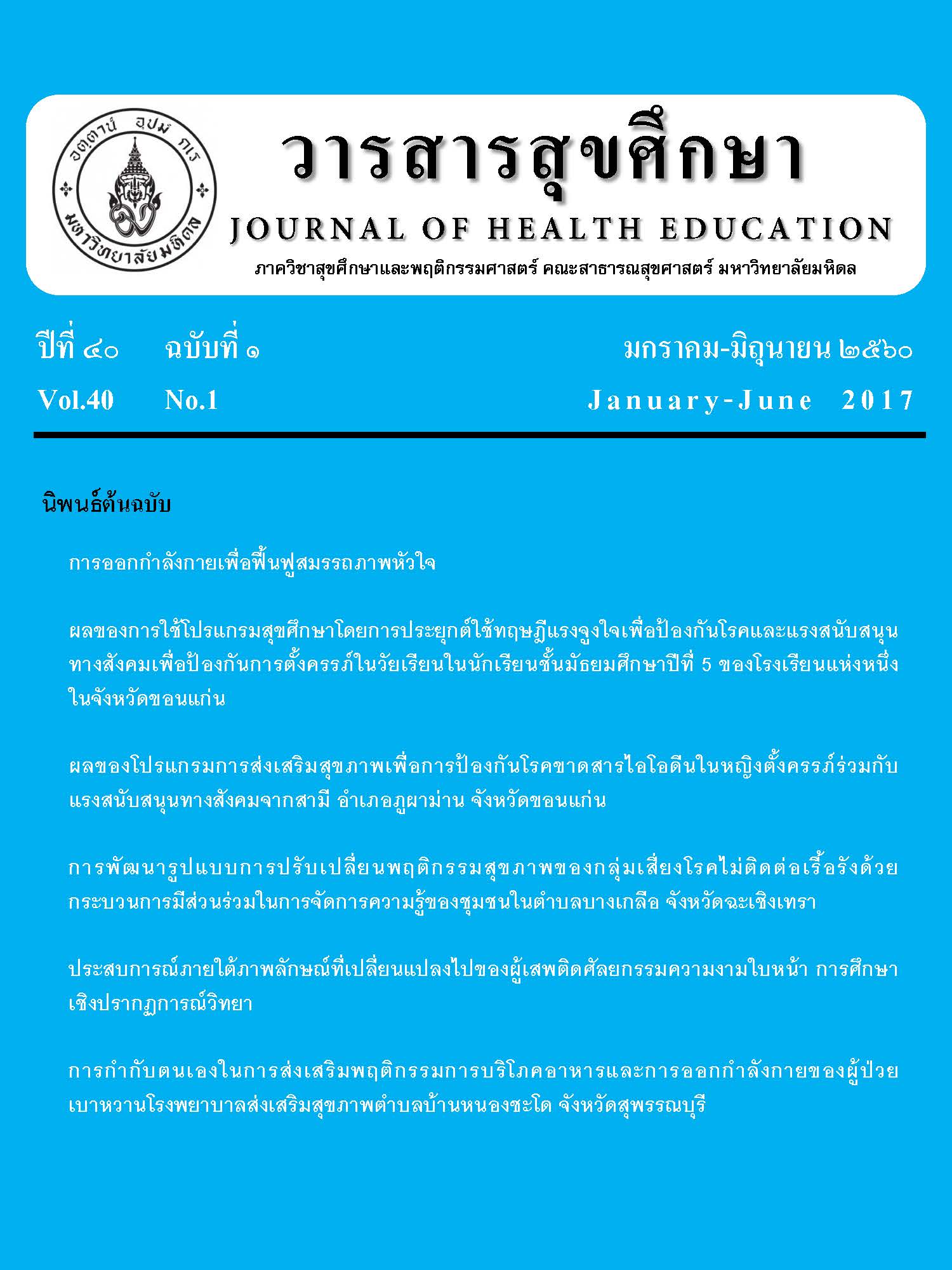The Development of Health Behavior Modification Model in Non-communicable Chronic Diseases Risk by Using Participatory Approach in Knowledge Management of the Community in Tambon Bangklua, Chachoengsao Province
Keywords:
Non-communicable chronic diseases risk group, Participation action, Knowledge management, Health behavior modification modelAbstract
The purposes of this participatory action research were to explore best practices of healthy elders, to build health behavior modification’s leader, to study the effect of behavioral change, and to develop health behavior modification model in non-communicable chronic diseases risk using knowledge management with ten co-researchers and ten people in a risk group for developing health behavior modification’s leader. This research followed PRECEDE model and knowledge management, began from context, planning, implementation and conclusion. The method was employed in-depth interview and questionnaires of self-efficacy, self-control, self-care and health outcomes.
The results revealed that; 1) the factors caused healthy elders were traditional livelihood and learning to develop self-health 2) health behavior modification’s leaders were aware of health problems of individual and community, analyzed the guideline preparing the model and also had model revision for implementation in risk group 3) the output of organizing health behavior modification program emphasizing learning and action with leader support demonstrated that self-efficacy, self-control and health behavior at the end of the intervention were significantly difference from those at the baseline, it was also shown for decreasing in BMI, waist length, blood sugar and blood pressure, and 4) getting health behavior modification model of Bangklua community with knowledge management, from the investigation of the community context, motivating the individual to aware and create health behavior modification model, analyzing the self-care guideline from elders in community, developing the model, organizing learning activity emphasizing actual practice, and evaluating the behavior and health outcomes



